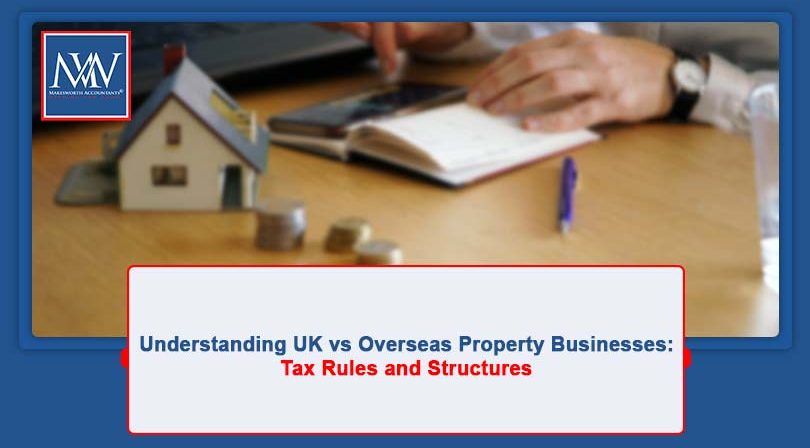
Understanding UK vs Overseas Property Businesses: Tax Rules and Structures
Two Property Businesses, One Landlord
If you own rental properties both in the UK and abroad, HMRC treats them as two distinct property businesses: a UK property business and an overseas property business. Even though the landlord is the same, the income and expenses from UK and overseas properties must be recorded and reported separately for tax purposes.
What Is a UK Property Business?
A UK property business includes any income-generating activity involving land or property located in the UK. Whether it’s residential buy-to-lets, furnished holiday lets, or commercial leases, all rental income from UK-based properties falls under this category.
Even if a landlord uses an agent to manage properties, they are still considered to be running the business. Income and expenses from all UK properties owned in the same legal capacity are combined to calculate the total profit or loss.
Furnished Holiday Lettings (FHLs)
Until 5 April 2025, furnished holiday lettings in the UK were treated as a separate category within a UK property business. Though not a separate business in itself, the profits and losses from FHLs were calculated separately and could not be offset against other property income.
From 6 April 2025 onward, with the abolition of the FHL regime, all income and expenses will be amalgamated within the UK property business for tax purposes, making record-keeping simpler but potentially less tax-efficient.
Legal Capacity Matters
If a landlord owns multiple properties in different legal capacities (e.g., personally and as part of a partnership), HMRC treats each ownership type as a separate business. For example, personal ownership and partnership ownership are not merged for tax purposes.
Example:
John owns two buy-to-let properties and a furnished holiday let personally, and he also holds a stake in a partnership that lets commercial property. His personal properties form one UK property business. The partnership’s property forms another, entirely separate, property business.
How Are Overseas Property Businesses Treated?
Properties located outside the UK fall under a separate overseas property business. HMRC requires the income and expenses from foreign properties to be calculated independently from UK properties.
Profits or losses from overseas property businesses cannot be offset against those from UK property businesses. The same legal capacity rules apply—only properties owned in the same legal form are grouped together.
Past and Future Tax Treatment
- Up to 2024/25: Furnished holiday lets in the European Economic Area (EEA) were treated separately, with distinct tax rules. Non-EEA holiday lets were grouped with other overseas property income.
- From 2025/26: All overseas properties—regardless of location—will be treated as part of a single overseas property business (per legal capacity). The FHL distinction will no longer apply.
Example:
Anne owns four UK residential properties, a commercial let, and two coastal holiday rentals—all personally. She also owns a long-term rental flat in Paris and a holiday apartment in Miami. Her UK properties form one property business, and her overseas properties form another. Each is taxed separately.
Key Takeaway
Understanding whether your property income is UK-based or overseas, and how it is owned, is crucial for getting your taxes right. The distinction between UK and overseas property businesses affects how profits are reported, how losses are treated, and which tax rules apply.
With the removal of special treatment for FHLs from April 2025, many landlords will need to revisit how they categorise and report property income. Seeking timely professional advice can ensure you remain compliant while maximising your tax efficiency.
Partner Note: ITTOIA 2005, Part 3, Chapter 2.
For more information, Book a Free Consultation
Need Accountancy Support?
For information on bespoke training, or if you have any other questions for Makesworth Accountant, please fill in your details below
















 151
151